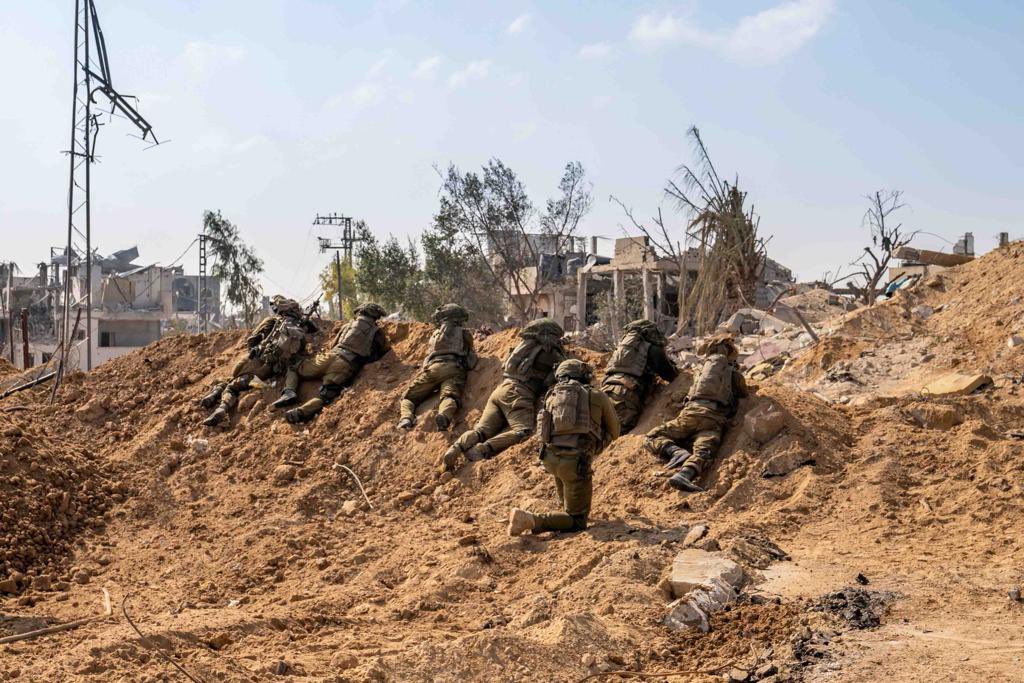
Written by Hippocrates Daskalakis, MD PhD in International Relations, Director of Studies at the Hellenic Institute for Strategic Studies
The 2006 Lebanon War is also known as the war between Israel and Hezbollah. But it is also called the “July War” (in Lebanon) or “2s “Lebanon War” (in Israel).
The 34-day conflict took place between Israeli forces and Hezbollah in the territories of Lebanon, Israel and the Golan Heights, and many analysts described it as the first modern “hybrid” in that it combined elements of traditional and unconventional warfare. Cyber operations and warfare. The Israeli goals of crushing Hezbollah militarily, along with its parallel political isolation and disorganization of its infrastructure in Lebanon, were not achieved to the extent expected. Despite the great losses incurred by Hezbollah, it strengthened its prestige through the effective resistance it demonstrated against Israel in the field that is distinctive to the latter, which is the field of classic traditional military conflict. There is no doubt that the current situation in the Gaza Strip leads us to comparisons and corresponding assessments of the events and Israeli reactions between the two neighboring but different conflicts.
Israel has comprehensively reviewed the events of 2006, reached findings and conclusions, assigned responsibility to the political and military leadership, and took corrective measures at all levels. The detailed investigation was conducted by the Winograd Commission appointed by the country’s parliament, which reached its conclusions in 2008. It is interesting to consider some of the research conclusions regarding the IDF’s preparation and civil-military relations and responsibilities during that period.
According to the findings, the inability of the IDF to implement – within a truly pressing time frame – the objectives that were set after several retreats in response mode, This is due to inadequate long-term preparation. Significant cuts in the defense budget contributed to serious malfunctions and deficiencies in administration, in the preparation of forces, and in the training of units.
Dysfunctional “modern” military doctrine with low-intensity conflicts dominating traditional forms of warfare (high-intensity conflicts) It shifted the IDF to readiness for “police” duties and created confusion in previously used personnel procedures. Behind these failures was a perception among political and military elites that Israel was now “out of the era of war” and had sufficient military power and superiority to deter others from declaring war on it. Thus, the main challenge that ground forces will face is dealing with low-intensity asymmetric conflicts. Inevitably, public preparations for a “real war” (the real war) faded away along with the disappearance of all the required measures on the political, social, economic, military, moral and cultural levels. (It is useful here to see the multilateralism in the sectors involved.) So the assessment suggests that despite the 2006 conclusions, this misconception has returned 15 years later with tragic consequences.
Also of interest are the Commission’s conclusions regarding the conduct of war at the highest level, which focus on higher civil-military relations and which have now become an operational ‘manual’ at this level. Specifically among many interesting points are:
Prime Minister Ehud Olmert bears full responsibility for government decisions and operations of the armed forces. He was responsible for the fact that the objectives of the campaign were not specific, carefully formulated and achievable through chosen courses of action. Ultimately, these were overly optimistic and far-fetched. In fact, when he understood that its implementation was out of reach, he did not adjust the business plans accordingly. He failed to consider operational plans deeply, and made hasty decisions without exhausting the consultation cycle with other experts outside the armed forces and without considering the full range of alternatives.

defense minister, Amir Peretz, He lacked sufficient knowledge of the basic principles of using military force to achieve political goals. Nor did he act with a broader understanding and strategy of the “media” for which he was responsible. It did not request operational plans from the IDF, did not supervise combat readiness and suitability of military assets, and did not examine the compatibility of selected military objectives and courses of action. His inexperience did not allow him to “creatively question” the proposals of the Chief of General Staff and the Prime Minister’s decisions on courses of action.
Chief of General Staff, Dan Halutz It was the main source of information related to the armed forces, He reviewed their plans and capabilities and presented his proposals to the government. In this particular case (2006), he was not prepared to deal with an employee kidnapping incident (the kidnapping of two soldiers by Hezbollah) despite the presence of indications. When this happened, he reacted spontaneously without informing the political leadership of the seriousness of the situation and potential consequences, nor did he provide detailed, updated response plans. He also did not inform the political leadership of the serious problems in preparing the IDF for the hastily implemented campaign. He also did not provide adequate answers about the campaign to other ministers’ questions and did not inform the government of the IDF’s concerns about the compatibility of military means with political goals.
He is attributed a special responsibility, because although he knew that the Prime Minister and Defense Minister had no military experience, he did not ensure that they were fully informed, leaving them with the impression that the IDF was adequately prepared, with plans tailored specifically to them. Circumstances and goals.
The committee’s findings go on to add to the “framework” of responsibilities and other responsibilities attributing responsibility for the failure to modernize Israeli security doctrineTo deal effectively with all threats, in the governments of recent years. He also criticizes senior officials in the Israeli army (heads of intelligence, training, and operations) for not presenting their reservations in a timely manner and after their severity, whether within the framework of the military decision-making process or before the political leadership.
In conclusion, the committee assigned personal responsibilities to the 3 highest persons responsible for civil-military cooperation and operations (Prime Minister, Minister of Defense, Chief of Staff). He did not accept the arguments of incompetence, insufficient knowledge of military affairs, insufficient information, and failure to challenge political decisions They criticized the unwanted airing of objections, concerns and personal judgments, not only from those at the top but also from those lower in the hierarchy. The three mentioned above were very soon taken out of “active” service.
The conclusions of the Winograd Commission (as well as the Agranat Commission which examined the events of the Yom Kippur War) should be taught in the Greek Higher Military Schools, the Diplomatic Academy and it should be ensured that the Prime Minister, Ministers and Deputy Ministers have studied defense and understand (at least) the conclusions drawn from them.
Note: Figures are taken from its official press release Winograd Committee (Retrieved October 29, 2023).
Why Israeli intelligence failed: Life is not… chaos, or perhaps it is

“Hipster-friendly coffee fanatic. Subtly charming bacon advocate. Friend of animals everywhere.”






More Stories
Italy: Meloni steps down in the European elections but remains Prime Minister
The humiliating end of Italian fascist dictator Benito Mussolini
TikTok 'ghosts' – what happened when India banned the app